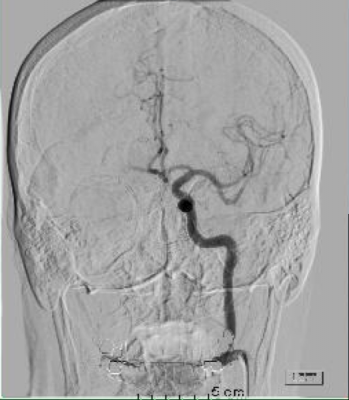
October 29, 2015 — Results from a new survey from the American Heart Association/American Stroke Association found that only half of healthcare professionals consider themselves adequately equipped with information about cryptogenic stroke, a stroke in which the underlying cause is still unknown after extensive testing. Depending on their specialty, 51-70 percent of physicians admit being uncertain about the best approaches to finding the underlying causes of these strokes. The survey, conducted in summer 2015, polled 652 healthcare professionals including neurologists, cardiologists, hospitalists, primary care physicians and stroke coordinators.
Leading healthcare providers from across the United States convened Oct. 9 in Washington, D.C., at the Cryptogenic Stroke Public Health Conference to discuss the new survey findings and possibilities for a coordinated, systematic approach to diagnose and manage patients with cryptogenic stroke. The conference was sponsored by the American Heart Association/American Stroke Association with support from Medtronic.
Each year, approximately 200,000 Americans have a stroke that is called cryptogenic because the initial search for its cause is unrevealing, and statistics show that these patients have reason to be concerned: A prior stroke is the No. 1 risk factor for a second stroke, and a second stroke is 16 times more likely to be fatal. If the cause is undiagnosed, it is not possible that the best treatments to prevent a second stroke are being employed.
"The ability to discern the causes of cryptogenic strokes has profound implications for preventing secondary strokes and improving patient outcomes," said Mary Ann Bauman, M.D., chair of the American Stroke Association Advisory Committee. "With the Cryptogenic Stroke Public Health Conference, we are coming together as a healthcare community to increase our knowledge about cryptogenic stroke and improve treatment."
Importantly, healthcare professionals recognize that among other causes, atrial fibrillation (AF), an irregular heartbeat that may occur only intermittently and thus be difficult to detect, can be a cause of cryptogenic stroke; however, according to the survey, physicians are not always sure how best to detect AF.
AF is one of several possible causes of cryptogenic stroke. Other common causes that should be investigated include patent foramen ovale (PFO) — a hole between the heart's upper chambers — and various forms of blood clotting disorders.
The outcome of the conference was to explore possible common and consistent protocols and pathways to improve quality of care; and to try to develop consensus among healthcare professionals from different specialities to better collaborate on patient treatment.
"We know that collaboration between those who serve cryptogenic stroke patients which is likely to require educating healthcare providers and the scientific community about cryptogenic stroke, appropriate work up, applicable studies and outcomes," Bauman said. "This is important, because stroke is the fifth leading cause of death in the U.S. and a leading cause of severe, long-term disability."
For more information: www.strokeassociation.org


 January 05, 2026
January 05, 2026 









